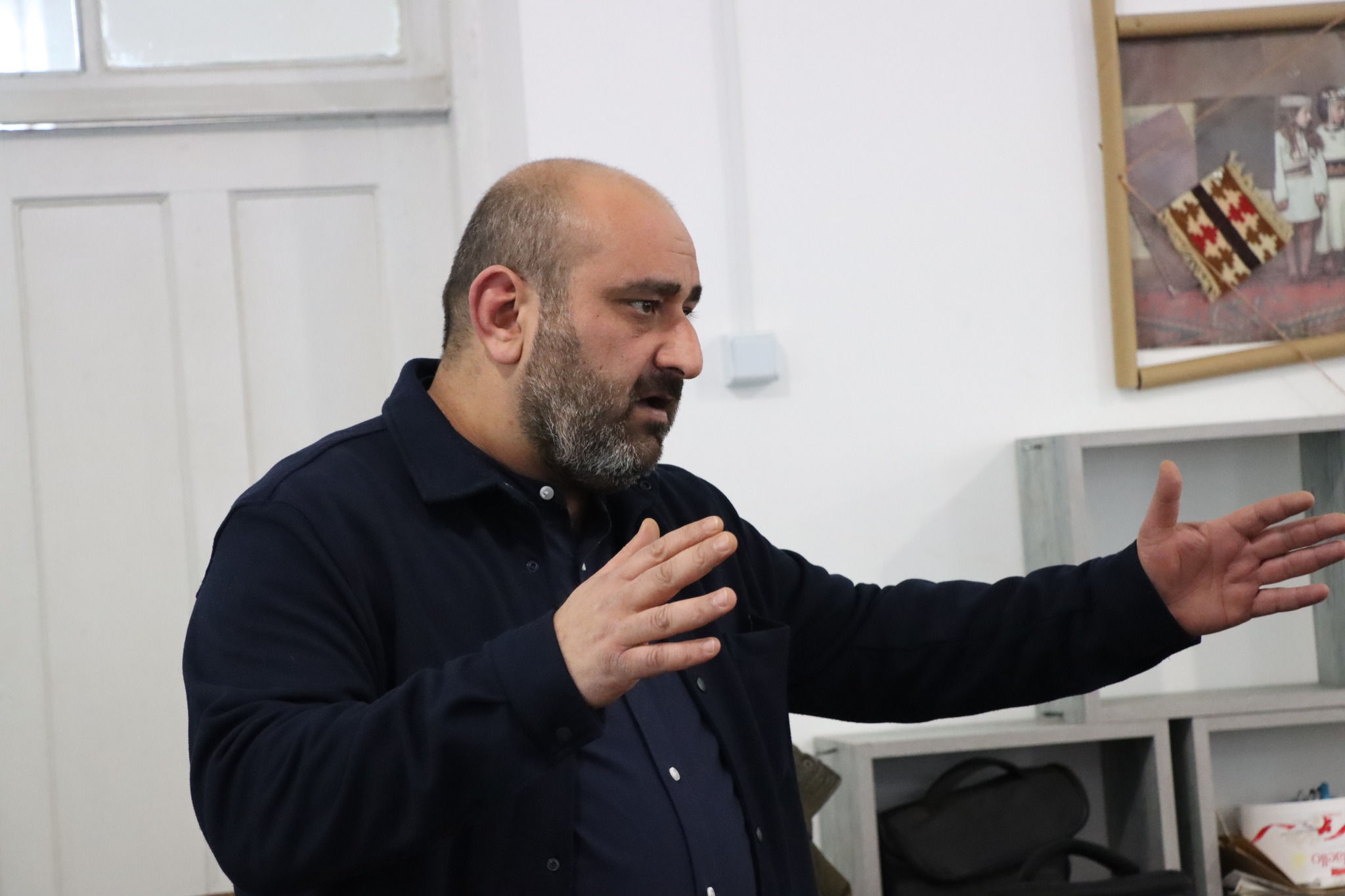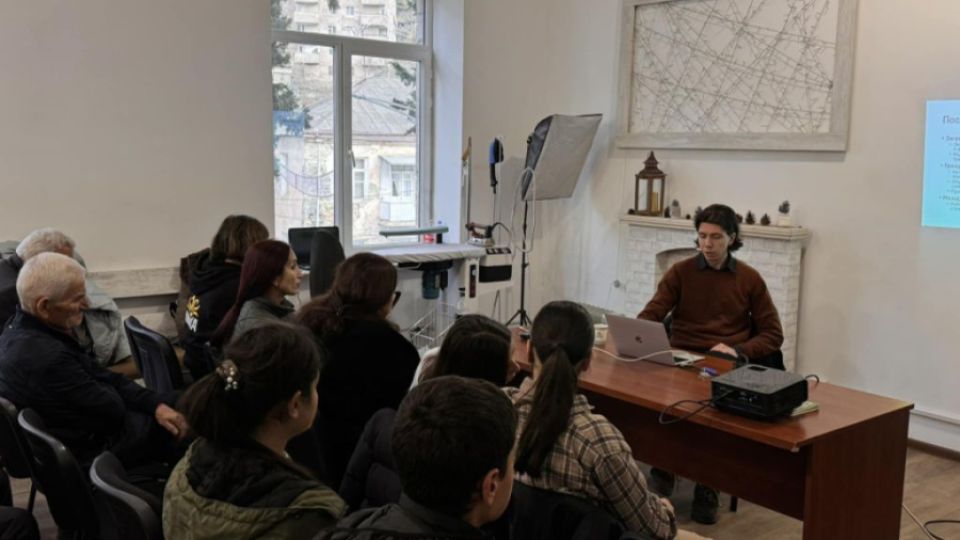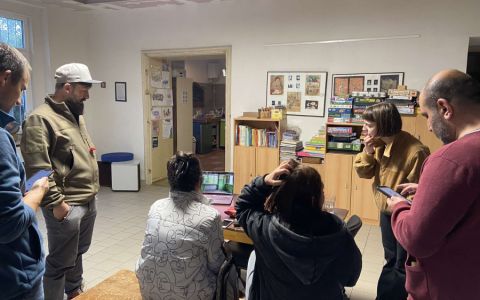Recently, colleagues from the Armenian organisations Center for Community Mobilization and Support (CCMS) and EcoLur visited us in Prague. Arnika is working with them in the Syunik region, one of Armenia's centres for mineral extraction and processing. As well as providing local people with information about the externalities of mining, we are trying to strengthen civil society and possibilities of a future green transformation. We have now returned the visit to CCMS and Ecolur: as representatives of Arnika, Gregory Maliukov and Nikola Jelinek travelled to the South Caucasus.
The trip included a presentation in Kapan, a town of about 30,000 people in the south-east of the country. We presented data from previous research by Arnika and local partners. These document the presence of various toxic substances connected to mining and ore processing in the soil, water and air since 2018, and highlight their impact on the health of the population. This type of data is often lacking in mining regions such as Syunik, leaving people with very limited means to claim their right to a healthy environment.
The meeting in Kapan was attended by representatives of various social groups - locals from vulnerable villages, civil society activists, young people, experts from NGOs and other public representatives. Discussions focused on the region's environmental challenges, such as polluted water and dangerous tailings, but also on the prospects for a green transformation. In particular, CCMS President Oleg Dulgaryan led a discussion on the possibilities for sustainable alternative development in the region.
 Our long-time colleague Oleg Dulgaryan discusses the possibilities of green development in the Syunik region. Photo by EcoLur.
Our long-time colleague Oleg Dulgaryan discusses the possibilities of green development in the Syunik region. Photo by EcoLur.
The trip to Armenia also included a visit to environmentally problematic sites, including one of the largest tailings dumps in the Caucasus. The main topic of discussion there was how to not only improve the existing situation, but also to prevent further pollution. Arnika representatives also shared experiences from our other projects aimed at ecological restoration and mitigating the effects of industrial pollution.
The meeting concluded with an agreement on further cooperation. We plan to organise further events focusing on education and development of local communities, and we also signed commitments of mutual trust setting the direction for future cooperation.
Arnika and local partners have been working in Armenia for a long time, supported by the Transition Programme of the Ministry of Foreign Affairs of the Czech Republic. The aim of the current project is not only to raise awareness of pollution problems, but also to actively involve the population in finding alternatives and sustainable solutions.








